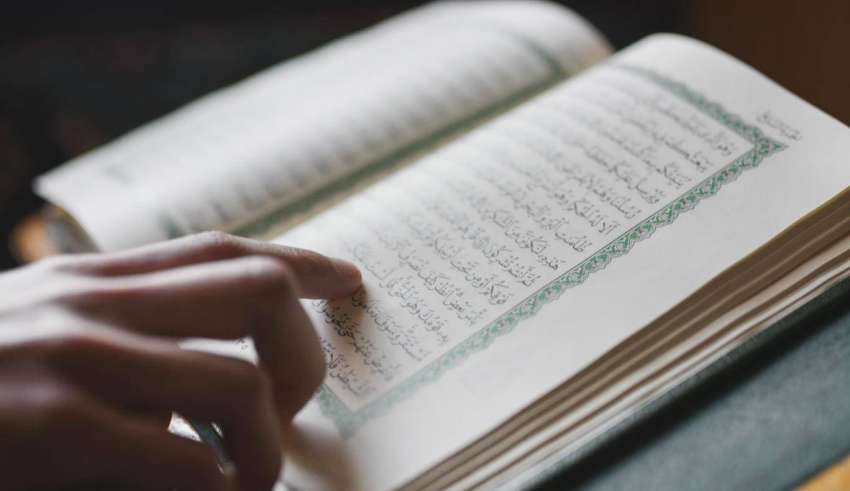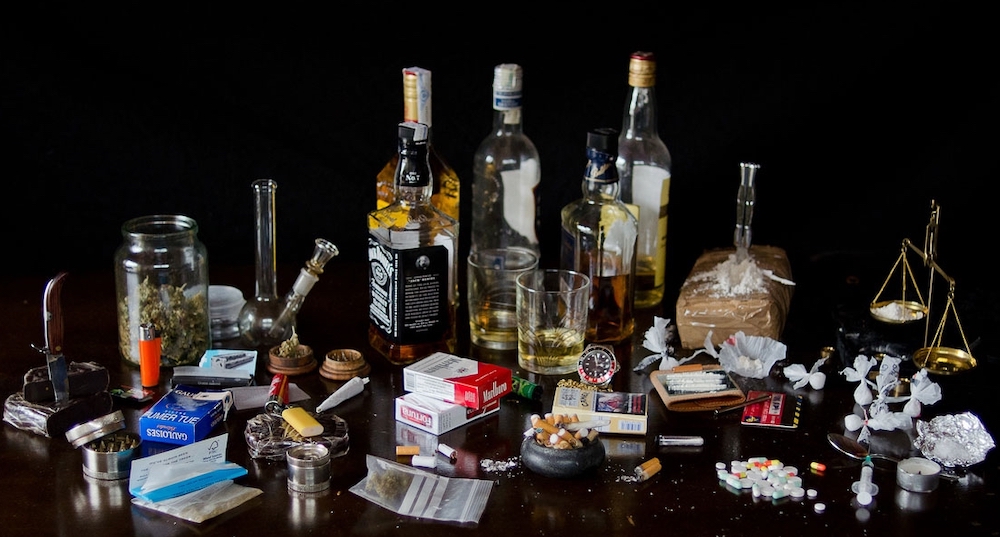The prophet (ﷺ) left us with many of his actions to follow regarding the consumption of food and drink. These actions ensure the most blessing in what we put in our stomachs.
BEFORE EATING
The messenger of Allah (ﷺ) said: “When any of you wants to eat, he should mention the Name of Allah in the begining, (i.e., say Bismillah). If he forgets to do it in the beginning, he should say Bismillah awwalahu wa akhirahu (I begin with the Name of Allah at the beginning and at the end).” [Tirmidhi]
This will push away the shaytan from eating one’s food with them. Our understanding of this is not that the shaytan will eat the way we physically eat but he eats in the unseen. The unseen cannot be explained with logic or with our limited understanding of the world.
The prophet (ﷺ) was sitting while a man was eating food. That man did not mention the Name of Allah (before commencing to eat) till only a morsel of food was left. When he raised it to his mouth, he said: “Bismillah awwalahu wa akhirahu (With the Name of Allah, in the beginning and in the end).” Messenger of Allah (ﷺ) smiled at this and said, “Satan had been eating with him but when he mentioned the Name of Allah, Satan vomited all that was in his stomach.” [Ahmad]
Mentioning the name of Allah before eating also puts His blessing in the food allowing more people to be satisfied by eating less.
The prophet (ﷺ) was eating with his six Companions when a desert Arab came and ate up the food in two mouthfuls. Messenger of Allah (ﷺ) said, “Had he mentioned the Name of Allah, it would have sufficed for all of you.” [Tirmidhi]
NOT LIKING CERTAIN FOODS
The prophet (ﷺ) never found fault with food. If he had inclination to eating it, he would eat; and if he disliked it, he would leave it. [Bukhari]
We should never insult any kind of food as there are people out there who are starving and we do not know the blessing that food may have. At the same time, we should not force feed ourselves foods that we do not like as the prophet (ﷺ) did not eat what he did not enjoy.
EATING WITH THE RIGHT HAND
A man ate with his left hand in the presence of Messenger of Allah (ﷺ), whereupon he said, “Eat with your right hand.” The man said: “I cannot do that.” Thereupon he the Prophet (ﷺ) said, “May you not be able to do that.” It was vanity that prevented him from doing it and he could not raise it (the right hand) up to his mouth afterwards. [Muslim]
EATING FROM ONE’S SIDE
‘Umar bin Abu Salamah reported:
I was a boy under the care of Messenger of Allah (ﷺ), and as my hand used to wander around in the dish, he (ﷺ) said to me once, “Mention Allah’s Name (i.e., say Bismillah), eat with your right hand, and eat from what is in front of you.” [Bukhari]
It is important that when sharing a plate with others to eat from your side of it; we should not wander our hands into other’s areas.
Related: The prophet (ﷺ) said, “Blessing descends upon food in its middle, so eat from the sides of the vessel and do not eat from its middle.” [Tirmidhi]
EATING TOGETHER
Some of the Companions of Messenger of Allah (ﷺ) said: “We eat but are not satisfied.” He (ﷺ) said, “Perhaps you eat separately.” The Companions replied in affirmative. He then said: “Eat together and mention the Name of Allah over your food. It will be blessed for you.” [Abu Dawud]
It is important to eat as a group when we can as there is more blessing in shared food. If one finds oneself not getting full, it is probably due to eating alone.
EATING RECLINED
Messenger of Allah (ﷺ) said, “I do not eat reclining (against a pillow).” [Bukhari]
This has been proven to increase pressure in the stomach which makes it more likely for the food to be pushed up the Oesophagus; it is generally unhealthy and should be avoided.
CLEANING THE DISH
The prophet (ﷺ) commanded the licking of fingers and the gleaning of the dish, saying, “You do not know in which portion the blessing lies.” [Muslim]
Blessing can be placed throughout the entire dish or merely some portions of it; to ensure this blessed morsels are consumed it is always best to consume what we have placed on the plate and also any food that may have fallen.
The messenger of Allah (ﷺ) said, “When a morsel of any of you falls, he should pick it up and remove any of the dirt on it and then eat it, and should not leave it for Satan nor should wipe his hand with towel until he has licked his fingers, for he does not know in what portion of the food the blessing lies.” [Muslim]
EATING WITH 3 FINGERS
Ka’b bin Malik (May Allah be pleased with him) reported: I saw Messenger of Allah (ﷺ) eating with three fingers (i.e., the thumb, the index finger and the middle finger) and licking them after having finished the food. [Muslim]
When eating with our hands we should not use more than 3 fingers to pick up the food which ensures that we do not get greedy.
SHARING FOOD
The messenger of Allah (ﷺ) said, “The food of one person suffices for two, the food of two persons suffices for four persons, and the food of four persons suffices for eight persons.” [Muslim]
We should never think that there is not enough food for someone else, we should always share the blessing when others are around.
DRINKING IN 3 GULPS
The prophet (ﷺ) said, “Do not drink in one gulp like a camel, but in two or three (gulps). Mention the Name of Allah (i.e., say Bismillah) when you start drinking and praise Him (i.e., say Al-hamdulillah) after you have finished (drinking).” [Tirmidhi]
The messenger of Allah (ﷺ) used to breathe three times in the course of a drink (he used to drink in three gulps). [Bukhari]
It has been proven in modern science that drinking too fast or too much at once can cause dilution of the blood which may cause faster excretion of water by the kidneys. Slow gulps ensure satisfaction without excess water and prevents putting pressure on the kidneys.
BLOWING INTO FOOD OR DRINK
The Prophet (ﷺ) forbade breathing into the vessel (of food or drink). [Bukhari]
Many of us blow at food or drink especially when it is hot; the prophet (ﷺ) did not like this act.
EATING OR DRINKING WHILE STANDING
Anas (May Allah be pleased with him) reported: The Prophet (ﷺ) forbade us from drinking while standing. Qatadah reported: “We asked him: ‘What about eating?”‘ He said: “That is even worse, (or may be he said) more detestable.” [Muslim]
Another narration is: Messenger of Allah (ﷺ) reprimanded us for drinking while standing. [Muslim]
It has been proven that eating and drinking when sitting is the most healthy method of consumption.
DRINKING OUT OF GOLD OR SILVER VESSELS
Hudhaifah (May Allah be pleased with him) reported:
The Prophet (ﷺ) prohibited us from wearing brocade or silk and drinking out of gold or silver vessels and said, “These are meant for them (disbelievers) in this world and for you in the Hereafter.” [Bukhari]
FILLING THE STOMACH
The messenger of Allah (ﷺ) said, “The son of Adam cannot fill a vessel worse than his stomach, as it is enough for him to take a few morsels to straighten his back. If he cannot do it, then he may fill it with a third of his food, a third of his drink, and a third of his air.” [Tirmidhi]
He (ﷺ) also said: “A believer eats in one intestine (is satisfied with a little food), and a kafir (unbeliever) or a hypocrite eats in seven intestines (eats too much).” [Bukhari]
This is regarded as extremely important for one’s health. Over-eating is the cause of many diseases not only associated with obesity; there are many diseases that one does not necessarily have to be overweight to suffer from – it all roots from filling the stomach too much. It weakens the body’s metabolism and makes us lazy and is also involved in the weakening of imane making it more difficult to worship Allah according to many scholarly views, thus the main reason of this advice from the prophet (ﷺ).
This is not to say that two people are satisfied by the same amount of food; stomach sizes vary and so do food portions. It is also not to say that one should deprive oneself from food to the point of feeling lethargic and weak, it is merely the teaching of the prophet (ﷺ) that we should eat less for our own benefit.
Let us end with the word of Allah:
“O children of Adam, take your adornment at every masjid, and eat and drink, but be not excessive. Indeed, He likes not those who commit excess.” 7:31
Allah knows best.





